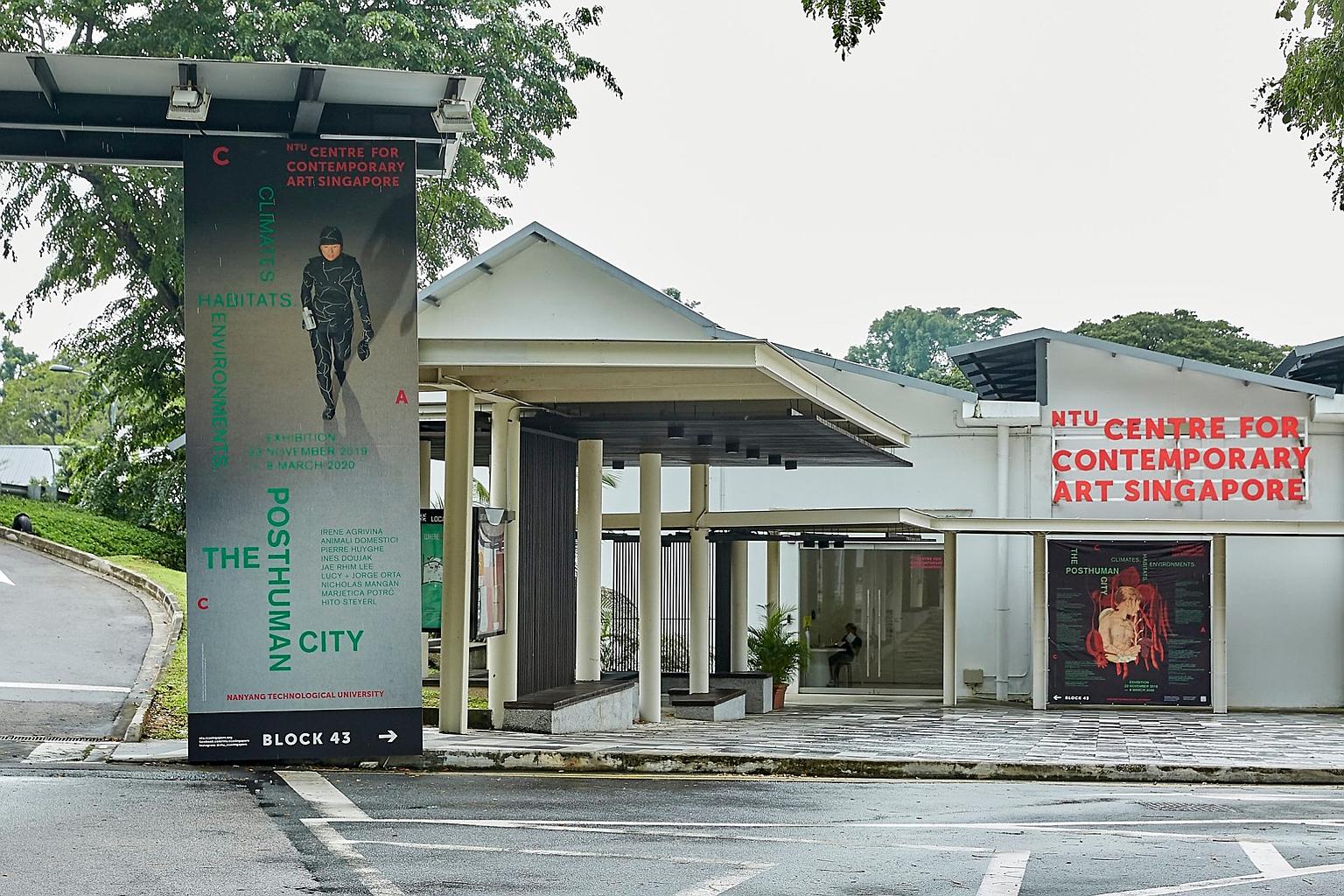NTU Centre for Contemporary Art to close Gillman spaces
Anchor tenant at arts enclave to lose exhibition and residency spaces, retain research centre and office
Sign up now: Get ST's newsletters delivered to your inbox

The NTU Centre for Contemporary Art at Gillman Barracks opened in 2013 and was jointly set up by the Nanyang Technological University and the Economic Development Board.
PHOTO: NTU CENTRE FOR CONTEMPORARY ART/FACEBOOK
The NTU Centre for Contemporary Art (NTU CCA) Singapore, anchor tenant of the Gillman Barracks arts cluster, will close its exhibition space and residency studios in March next year, when funding from the Economic Development Board (EDB) ceases.
This deals yet another blow to the arts enclave off Alexandra Road, which in the past five years has seen many art galleries leave the area due to low sales and visitorship.
While NTU CCA's exhibition hall and residential studio spaces in Blocks 43, 37 and 38 will be gone after March next year, the institution will still exist, retaining its research centre and office in Block 6.
NTU CCA, which opened in October 2013, was jointly set up by the Nanyang Technological University (NTU) and EDB.
While its exhibition hall and residencies for international artists will be no more, the centre will continue to research contemporary art and run events for the public.
Prof Joseph Liow, dean of NTU's college of humanities, arts and social sciences, told The Straits Times last Friday that the centre is "looking at diversifying the locations of its exhibition and other activities, and increasing its presence at the NTU main campus and other NTU locations".
Founding director Ute Meta Bauer told Chinese daily Lianhe Zaobao last Friday that the centre chalks up about $2 million in expenses every year, including the cost of renting its exhibition hall, residencies for international artists and salaries for staff. Without funding from EDB, which has supported the centre for the past seven years, it will be hard for it to maintain its current range of operations.
The centre employs 14 full-time staff, half of whom will not have their contracts renewed after March.
The centre is still looking for new sources of funding, Prof Bauer added.
Over the years, NTU CCA has conducted artist residencies and mounted large-scale exhibitions featuring top contemporary artists such as Simryn Gill, Joan Jonas and Yang Fudong. It has also organised numerous public events, including lectures, workshops and festivals.
The centre was temporarily closed due to the Covid-19 pandemic, but reopened to the public last month.
"The current environment is not easy for many sectors including those in arts and culture. Many are looking at how to navigate the new normal and the CCA is no different," Prof Liow said.
"The CCA is going through a period of transition and transformation of its longer-term capabilities for the post Covid-19 recovery."
This news comes not long after fellow Gillman Barracks tenant Chan + Hori Contemporary left in June to transform into a curatorial, advisory and artist-management business.
NTU CCA will run an Online Benefit Art Auction from Oct 1 to 18 to support two ongoing projects - an online archive documenting the centre's work from its inception to the present, and a publication titled Climates. Habitats. Environments.
An exhibition with works by filmmaker Trinh T. Minh-ha, slated to run from Oct 17 to Feb 28 next year, will be the centre's last show at the enclave.
Artist Milenko Prvacki, 69, senior fellow at Lasalle College of the Arts, bemoaned the loss of what he felt was a "very specific and needed space in Singapore".
"Singapore artists had the opportunity to collaborate and have a dialogue with international artists - and compare their placement in the world, not only in Singapore... I (also) know many people who came here and they really enjoyed their residencies, learning a lot about Singapore."
Robert Zhao, 37, a former Singapore artist-in-residence, also felt the centre had opened doors for him, noting that he met many visiting curators and had a lot of exhibition opportunities overseas.
"The centre was very good at making various artists' works visible to the people who were visiting."
Artist Jennifer Teo, 45, co-founder of the Post-Museum collective, was sorry to hear the news, adding that the centre's international outlook and large-scale exhibitions helped elevate the standard of art shown in Singapore.
With a nod to the ongoing exhibition Non-Aligned, whose moving-image works offer "an educational, but also demanding experience", she said: "Galleries might not really show something like this because it's not that 'sellable' and, for the museums, maybe it won't have such a mass appeal."
The displacement of various arts institutions in Singapore has thrown the spotlight on issues of funding and policy in the arts scene.
The Straits Times reported last month that the Intercultural Theatre Institute and theatre company The Necessary Stage would be losing their long-time homes.
In January, it was announced that Centre 42, a theatre development venue in Waterloo Street, would be renovated and a new Arts Resource Hub - a National Arts Council (NAC) initiative to support freelancers - would co-run the venue, which left the arts community concerned that this would affect Centre 42's operations.
The Substation, a contemporary art institution founded by late playwright Kuo Pao Kun in 1990, had also said it was worried about potential venue loss after the NAC takes back the building for renovations in July next year.


